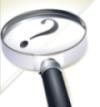Aplastic Anemia
Question:
Is olive leaf extract safe to take if you have Aplastic Anemia?
Answer:
I don't know as there are many factors to consider, and can only present some of the known facts.
It would be important to consult your doctor before taking Olive leaf extract, but depending on the specific cause of your Aplastic Anemia, it may be very beneficial.
A) If caused by an autoimmune disease:
Olive leaf extract may help due to its anti-complementary activity (1) and anti-inflammatory properties. If you are already on immuno-suppressants, this would have to be considered by your doctor.
B) If caused by ingestion of poisons:
Unless you eat everything organic, you will likely get a dose of pesticides, herbicides and preservatives in your food every day.
Olive leaf extract has been shown in to have a protective effect against pesticides containing Permethrin (2), (3) in rats and human cells. It has not been tested against others poisons as far as I am aware but may have some protective effect against others as well.
(C) If caused by radiation and chemotherapy (treatments for cancer):
Olive leaf extract does have radioprotective properties in mice (4) which could translate to humans in the case of Aplastic Anemia caused by X-ray irradiation.
(D) If caused by infectious diseases such as hepatitis, Epstein-Barr virus, Cytomegalovirus:
Olive leaf extract is believed to counteract these pathogens among others (5). If your bone marrow is still producing some blood cells, the Olive Leaf may help by destroying or inhibiting the replication of pathogens so allowing your bone marrow cells to recover.
In addition to this, Olive leaf extract provides a protective buffer in your system from a range of pathogens and can be taken as a preventive under normal circumstances. This would be preferable to taking antibiotics or antiviral medication as a preventive measure.
Olive leaf extract has displayed antithrombotic properties in rabbits (6) and I believe humans which may be counterproductive in the case of Aplastic Anemia. Once again, your doctor’s advice is recommended.
References:
(1) “In vitro anti-complementary activity of flavonoids from olive (Olea Europaea L.) leaves.”
Pieroni A, Heimler D, Pieters L, van Poel B, Vlietinck AJ
Source
Department of Pharmaceutical Sciences, University of Antwerp, Belgium.
(2) “Olive leaf extract modulates Permethrin induced genetic and oxidative damage in rats.”
Cytotechnology. 2012 Aug;64(4):459-64. doi: 10.1007/s10616-011-9424-z. Epub 2012 Jan 20.
Turkez H, Togar B, Polat E.
Source
Department of Molecular Biology and Genetics, Faculty of Science, Erzurum Technical University, Erzurum, Turkey.
(3)”Olive (Olea Europaea L.) leaf extract counteracts genotoxicity and oxidative stress of Permethrin in human lymphocytes”.
Türkez H, Toğar B.
Source
Department of Biology, Faculty of Science, Atatürk University, Turkey.
(4) “Radioprotective effects in vivo of phenolics extracted from Olea Europaea L. leaves against X-ray-induced chromosomal damage: comparative study versus several flavonoids and sulfur-containing compounds”.
Benavente-Garcia O, Castillo J, Lorente J, Alcaraz M.
(5) “Antimicrobial properties of oleuropein and products of its hydrolysis from green olives.” Fleming, H.P.;Walter, W.M., Etchells, J.L. Microbiology 26(5):777-782, Nov. 1973, and many other animal studies.
(6) “Antithrombotic effect of repeated doses of the ethanolic extract of local olive (Olea Europaea L.) leaves in rabbits”.
Abdallah M. Dub and Aisha M. Dugani
Libyan J Med. 2013; 8: 10.3402/ljm.v8i0.20947.
Published online 2013 May 22.



